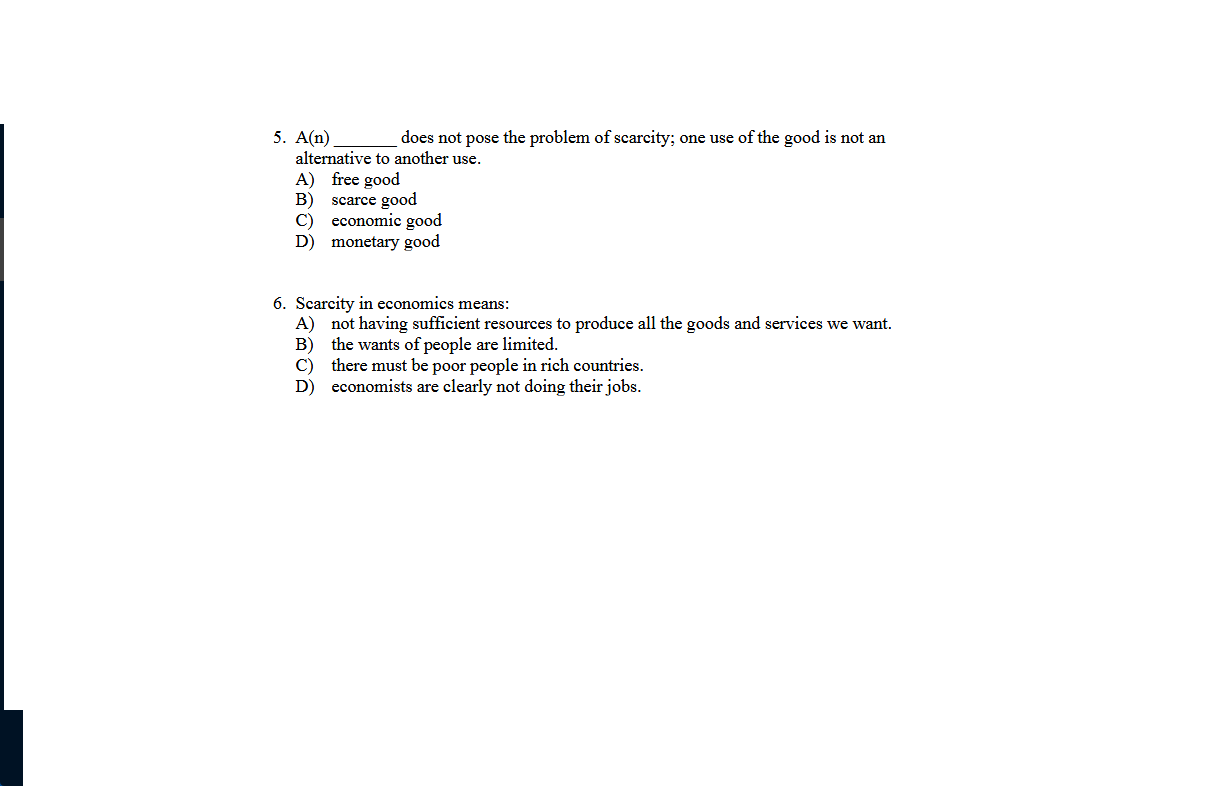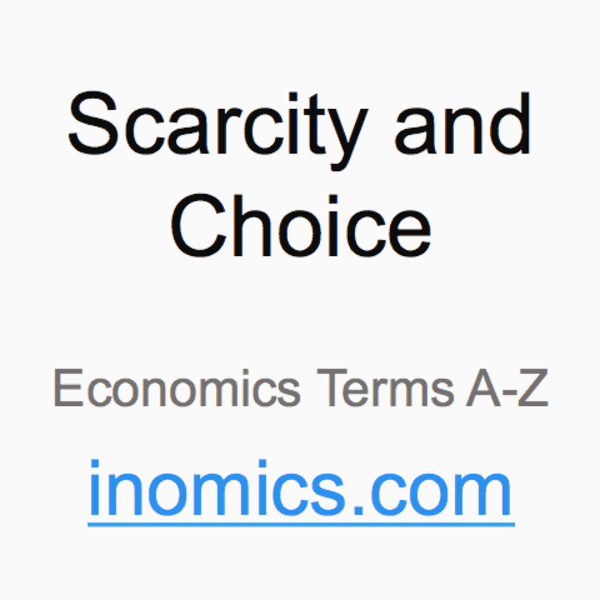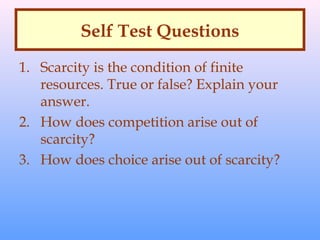Scarcity is the condition of finite resources, meaning that there is not an infinite supply of goods, services, and resources available to meet the needs and wants of people. This is a fundamental concept in economics and is one of the main factors that drive the production, distribution, and consumption of goods and services.
One of the key ways that scarcity affects people is by limiting their choices. When resources are scarce, individuals, households, and businesses must make choices about how to allocate those resources in order to meet their needs and wants. For example, if there is a limited supply of a certain type of food, people must decide whether to use that food to feed their family or to sell it for profit. Similarly, if there is a limited supply of land, people must decide whether to use it for farming, housing, or some other purpose.
Scarcity also drives economic decision-making at the societal level. Governments, businesses, and other organizations must make choices about how to allocate resources in order to achieve their goals. For example, a government may decide to allocate resources towards healthcare, education, or defense, depending on its priorities. Similarly, a business may decide to allocate resources towards research and development, marketing, or expansion, depending on its goals.
One of the ways that societies can address scarcity is by increasing the efficiency with which resources are used. For example, using resources more efficiently can help to stretch the supply of those resources further and reduce the impact of scarcity. This can be achieved through technological advances, changes in production processes, and other strategies.
In addition to increasing efficiency, societies can also address scarcity through trade and exchange. By trading goods and services with other societies, people can access resources that may be scarce in their own region. For example, a society that has a surplus of wheat may trade it for a society's surplus of oil, allowing both societies to access the resources they need without having to produce them themselves.
Overall, scarcity is a fundamental condition of life and is an important factor in shaping the production, distribution, and consumption of goods and services. By understanding and addressing scarcity, societies can better meet the needs and wants of their citizens and achieve their goals.


.jpeg)






